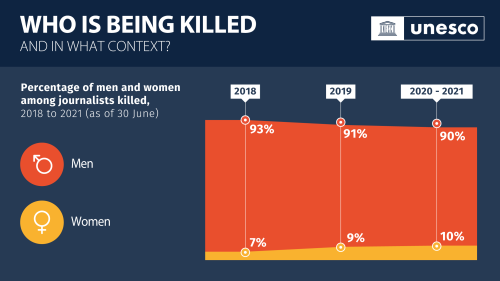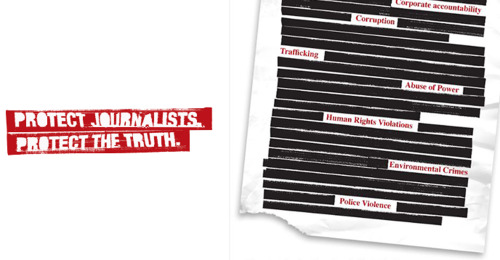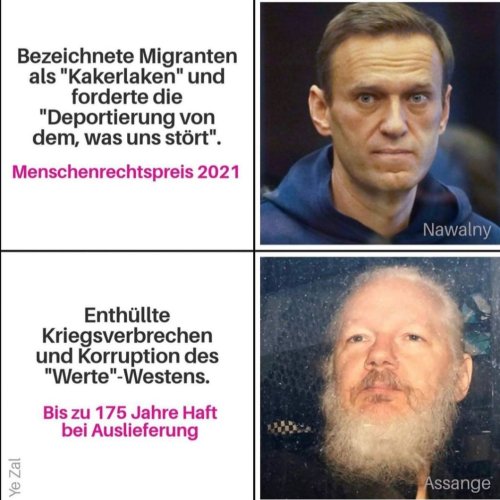#press freedom
Cocaine destroys Freedom of the Press
The War on Drug must end!
https://www.freitag.de/autoren/goggo-gensch/der-tod-des-ruben-espinosa
Post link
Press freedom needed vs COVID-19, says Amal Clooney - Digital Life Asia
An eloquent and compelling message from Amal Clooney, International Human Rights lawyer, at the IBM Think Digital Conference 2020:
1. Silencing the truth is deadly.
“As the Washington Post’s tagline says, democracy dies in darkness. And if you silence the press, it gets very dark and very quiet. Because of this, I have focused in my legal practice on defending journalists who are prosecuted simply for doing their job. One of the cases I’m working on is the trial of a Filipino American journalist, Maria Ressa, who is a CNN anchor in Asia and went on to set up her own news site.”
2. Global issues require a global response.
“My second message is that global problems need global solutions. The virus we are dealing with spreads through people in every city and corner of the globe. Meaning we are all part of the problem. But our interconnected world is also part of the solution. We need to share data to better understand how the disease is spread. We need to purchase protective equipment produced abroad. To bring together the best scientific minds. To produce reliable tests, treatments, and, hopefully, vaccines.”
3. We all have a part to play.
“The scale of the problem makes us think that surely there is nothing we can do. But this pandemic has shown us that each of us can play our part. That it’s not just cooperation between governments that is needed, but also engaged citizens in every community. People all over the world are stepping up in new and creative ways to support each other in the fight against a lethal enemy.”
International day to end impunity for crimes against journalists
Over the past decade, a journalist has been killed every four days on average. Each year since 2016, more journalists have been killed outside of conflict zones than in countries currently experiencing armed conflict.
A total of eighty-six killings of journalists worldwide have been reported between 2020 and the end of June 2021. The majority of killed journalists are killed in their country of nationality. Among the 400 journalists killed from 2016 to 2020, 22 (6%) were foreigners.
Impunity for crimes against journalists continues to prevail, with nine of ten killings remaining unpunished. The year 2020 saw a slight improvement, however, with thirteen per cent of cases worldwide reported as resolved, compared to twelve per cent in 2019, and eleven per cent in 2018.
In many cases, impunity results from bottlenecks within the justice system itself.
Ending impunity for crimes against journalists is one of the most pressing issues to guarantee freedom of expression and access to information for all citizens.
While fewer women journalists are among the victims of fatal attacks, women are particularly targeted by offline and online gender-based threats and harassment. These attacks have increased significantly in recent years.
Women journalists have identified political leaders, extremist networks and partisan media as some of the biggest instigators and amplifiers of online violence against women, according to the UNESCO discussion paper The Chilling: Global trends in online violence against women journalists, 2021, based on a major interdisciplinary study produced by the International Center for Journalists (ICFJ(link is external)).
In the context of the Covid-19 pandemic, media workers around the world have also been subject to harassment, persecution and detention as a result of their work to keep citizens informed about the health crisis.
Source: UNESCO and the UNESCO Director-General’s Report on the Safety of Journalists and the Danger of Impunity, 2020.
Post link
“Even if journalists who published WikiLeaks’ leaks are not summoned by an American grand jury, the intimidation of Julian Assange and Chelsea Manning will be enough. Real journalism is being criminalised by thugs in plain sight. Dissent has become an indulgence.”
John Pilger, journalist
The U.S. Government’s Indictment of Julian Assange Poses Grave Threats to Press Freedom
Somewhat long but worthwhile read
“You can’t care about problems of every single country in the world!”
Beside the fact I’m human and I naturally wish everyone would get what I’m lucky to have, I’ll tell you why I do care.
I have friends in Ukraine. None of them have left or plan to do so. It’s their home and even though at least one of them has relocated, talking people out of returning home because it’s not safe, knowing damn well how it feels to miss your home, if it’s in the middle of a whirlwind or not, is not something I got prepared for. So I understand.
I have friends in southeast Asia. I would argue about how the palm oil is bad with anyone but them. Because they know. They do. But at the same time, they know that we have been going down this environmentally bad path for too long and cutting it off would make many of their fellow citizens fall into extreme poverty, the economy would fall apart and it’d be mainly the ordinary people who would suffer. So I understand.
I have friends in the US who are genuinely afraid of the prolife movements and feel sad when they hear how much we learn in our schools. The “stupid Americans” stereotype has made us mock the wrong people, those who became victims to the insufficient education system. So I understand.
I have friends in southeastern Europe. I have a friend in Azerbaijan. I have friends that are children of emigrants, that want to study abroad but don’t have finances, friends that are forced into some religion, friends that have never felt plight in their country, yet they’re not happy. Friends that are being told by ignorant people that they don’t understand their own history.
So I understand. I have opened my heart to people who are different from me, yet very similar and we talk a lot.
Before I met them, I had no idea what the world is like, that it’s so full of problems that get pushed aside. That we’d rather complain about how our problems are what we should focus on the most when some are dying for their ethnicity, religion, can’t find a job because of something their leader did and they speak against, are dependent on the brands we all know and love quite literally with their lives.
I decided to take the time to understand them. Because to understand is to love and to love is to understand.








